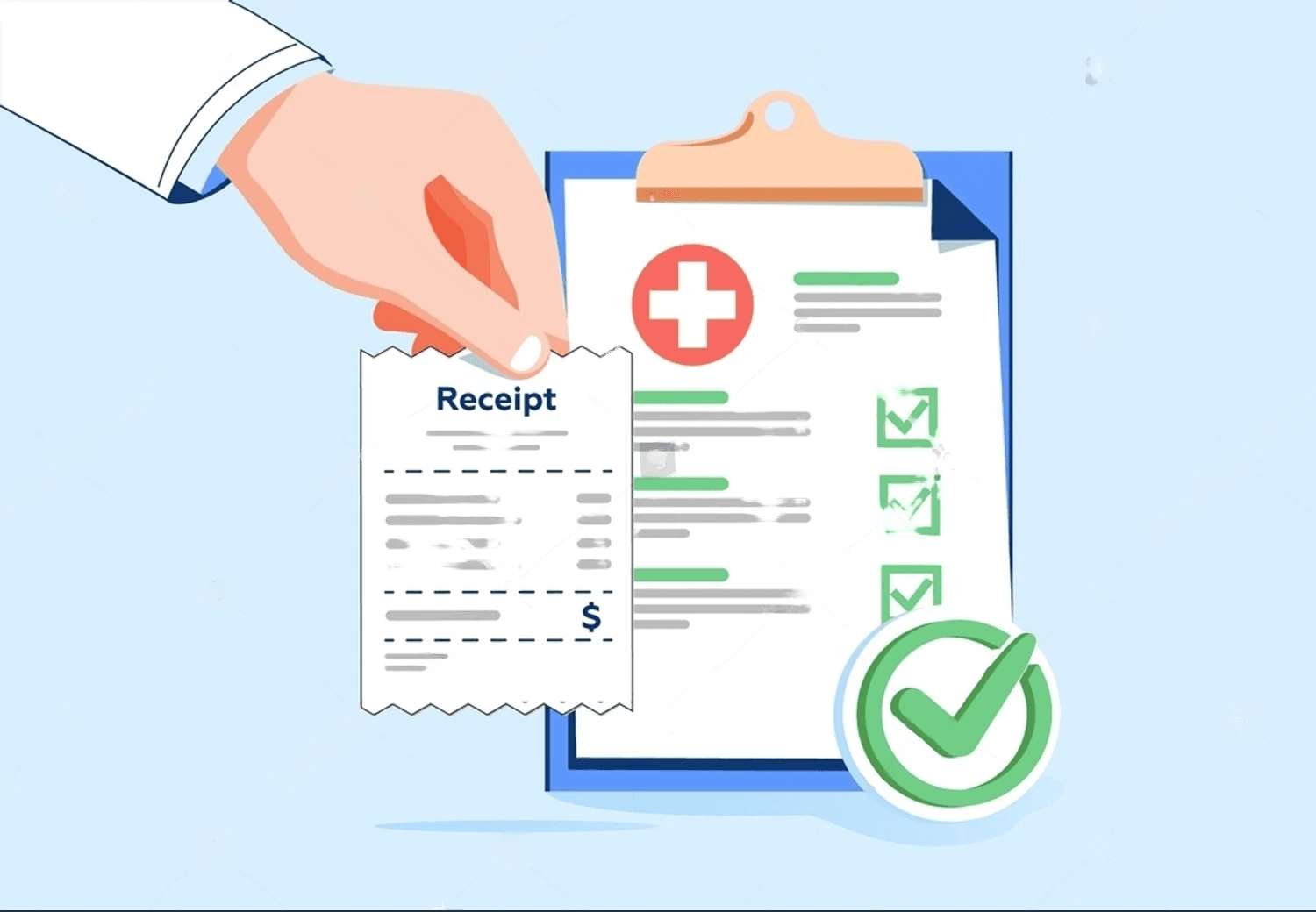Time Off in the Therapy Profession: Vacation Tips for Therapists
Taking time off is essential for therapists to avoid burnout and maintain high-quality care. Set clear boundaries, plan for emergencies, and ease back into work with support.
Apr 26, 2024
By
Team Allia
Vacation days are a necessity across industries. Even in the US, one of the most ‘anti-vacation’ countries in the developed world, workers get an average of 11 vacation days, and this number grows as they progress with their career.
In mental healthcare though, we see a different story.
Only about 67% of therapists believe taking time off is necessary - leaving about a third of them believing they don’t need any time off at all!
But private practice is a very different profession from other industries. Most private practitioner see between 25 and 35 clients each week. That’s 25-35 different lives, different problems, different emotional baggage that the therapist has to deal with.
Emotional investment is inherent to the job, and if you don’t take time off to relax and recharge your batteries, you’ll quickly find yourself exhausted and burnt out.
The Detachment Dilemma
Have you ever plugged your phone to the charger before bed, but forgotten to turn the switch on? In the morning, you realise you’ve wasted the nighttime hours, and now your phone battery is dying, and you have to make it last through the day somehow until you find a place to charge it.
Vacationing without detaching is very similar.
Taking a vacation for your own self care involves leaving your work behind, escaping the daily grind and letting your mind relax. This is easy to do in other professions, but what if someone’s health and wellbeing relies on you? How do you take that break, at ‘someone else’s expense’?
It’s very common for therapists to be unable to fully detach from their work while they are on vacation. Many grapple with the guilt of leaving their clients in need, the looming possibility of client emergencies and the temptation to stay connected to work.
This is to be expected; when you form a deep connection with someone - even in a professional setting - you feel the weight of responsibility for their well being on your shoulders, and this may make you feel guilty, always ready for an emergency, and may even have you tempted to stay connected to work.
But constantly being on standby undermines the very purpose of a vacation. Not being able to detach from your work will only serve to burn you out further. Not only does this affect your own mental health and wellbeing, it can even diminish the quality of care you provide your clients.
You end up like the phone that never got charged during the night.
It’s important to see the vacation as a necessary act of self-care, rather than just some time off. Dealing with vacation guilt is hard, but not impossible.
Navigating Client Contact
Detachment difficulty due to your own sense of responsibility is one thing - but another frequent cause is client contact. It’s very important for therapists to establish and maintain boundaries with their clients, but even more so when they are on vacation.
Having clients contacting you frequently when you are on break can be very counterproductive, making it harder to detach, increase clients’ dependency and even potentially push the boundaries of an ethical therapeutic relationship.
Before you head off on your break, inform your clients that you will not be available. Communicate the dates to them clearly, and let them know who to contact in case of emergencies.
Dealing With Emergencies
Unfortunately, emergencies are inevitable, and sometimes these can pop up while you are out of office. After all, clients’ problems don’t disappear when you’re not around; this can be a source of stress and anxiety for many therapists when they’re planning a vacation.
You should be prepared for any such situations to maintain your own well being and your clients’.
Addressing Client Crises
Have a trusted colleague or supervisor step in if a client has an emergency while you are away. They can act as a backup therapist if something pops up. Make sure your clients know when and how to reach them and what protocols to follow.
Give your backup therapist any essential information about your clients, their treatment plans, and any ongoing issues. This helps them provide effective support.
If an emergency does arise, the backup therapist can determine if it’s absolutely necessary to contact you, or if the situation can de-escalate without your intervention.
Having a proper plan in place for emergencies is important for both you and your clients. Not only does it ensure your clients get the support they need, but you are able to detach from work better knowing things will be taken care of in your absence.
Returning To Therapist Life
Just like detaching is hard when you first step away from work, it can be equally challenging to re-enter the work mindset once you’ve thoroughly detached and gotten into the vacation zone.
Many therapists find themselves confronted with an overwhelming workload when they arrive back. There are backlogged client sessions and administrative tasks to deal with, and these can be mentally and emotionally exhausting to deal with.
Dealing with clients' emotional troubles involves significant investment on part of the therapist, and this can lead to secondary trauma. This is true on regular work days as well, but it’s especially true after a break, when there is a heightened workload to deal with .
When you’re returning to work after a period of time of being detached from it, you may experience extra stress and fatigue from empathizing with the clients, which adds to the difficulty of returning to work.
How To Make a Smooth Transition Back To Work
Making the transition is not easy, but it’s also not impossible.
Prioritize
The first step is to list your priorities - which of your tasks and clients require urgent attention? You should ease yourself back into your workload, instead of taking it all on at once. Address critical cases first to get the pressure off your back. This way, your other tasks will be easier to handle.
Supervision & Peer Support
Secondary trauma and emotional difficulty is normal, and many therapists find themselves struggling to get back into the zone after a vacation. In such cases, discussing your cases and experiences with your supervisor can help. This helps you process your own emotions, and put you in the right mindset to manage your clients. It also helps prevent secondary trauma from accumulating.
If you as the therapist aren't doing so well, it can be difficult to provide adequate care to your clients who depend on you.
Drawing Boundaries
Having clear boundaries with your clients will also help you manage your workload and expectations. If you’re suddenly burdened by all your work as soon as you return from vacation, you’ll easily find yourself overwhelmed, and at greater risk of secondary trauma.
You can start with limited contact with your clients, before gradually allowing it more frequently. You can also start with taking on only a few clients when you first return to work before increasing your workload.
In any case, your clients should know not to bombard you with calls and messages until you are ready to handle them.
Time Management
Managing your time is important throughout the year, but especially after a vacation. Schedule breaks between sessions as you see fit to prevent mental and emotional exhaustion.
Final Thoughts
Taking time off as a mental health professional isn’t a luxury; it’s a necessity for you and your clients’ wellbeing. It’s not the easiest task to simply step away, but taking a break is important for you to recharge your batteries as a therapist, and return to work with a fresh perspective.
With a vacation, not only can you prevent burn out and manage your own mental health, but also sustain and improve on the quality of care you provide to your clients. The time you take off is about preserving the empathy and emotional strength that helps you make a difference in the lives of others.
Our AI-driven software is especially designed for mental health practitioners. We can help you:
Stay on top of operational tasks
Keep track of client data
Maintain client privacy
Contact us today to take advantage of the best patient management platform to date.
More from Allia
Dec 16, 2024
Managing No-Show and Late Cancellation Clients in Therapy Practice
Managing No-Show and Late Cancellation Clients in Therapy Practice
Sep 12, 2024
How to conduct a therapy intake session? A detailed guide
How to conduct a therapy intake session? A detailed guide
Sep 11, 2024
A Guide to Billing Insurance for Therapy for Mental Health Professionals
A Guide to Billing Insurance for Therapy for Mental Health Professionals



